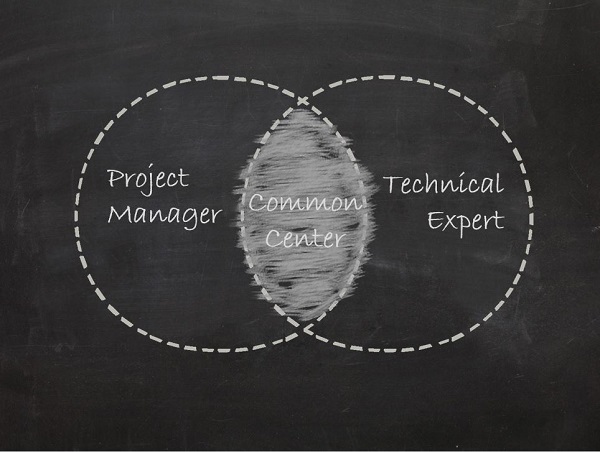Technical Expertise and
the Project Manager
By Kathy Martucci, PMP
In a previous blog I wrote about transferable project management skills including verbal and written communication, organization, problem solving, and teamwork. I truly believe this; and the blog made a good case for each one. My opening statement was: “Face it, one of the reasons you like being a project manager is that, theoretically, you could be in the healthcare sector one week and in the finance sector the next.”
Kurtis Morley, one of our readers, thoughtfully responded with: “…much of the time, the combination of having technical/scientific/engineering/construction expertise combined with PM expertise and ability are really valuable for best odds at effectiveness. “
I heartily agree. Whether by plan or not, most of us do develop a project management niche for ourselves. As our experience in that arena grows, our career paths narrow. Case in point: I have successfully led different types of technology (applications, telecom, e.g.) projects. However, I wouldn’t apply for (and I don’t think anyone would hire me!) a project to engineer a new product or oversee the construction of a new hospital.
Kurtis explored this very topic further, offering his thoughts on project success with a project manager that does not have that specific engineering or construction background. That may only work, he says: “… where the project/program is large enough to garner the large team and big funding for many specialists’ involvement.”
Point taken. If the project model (budget, resources, complexity, etc.) supports it, the organization can surround and support the project manager with a team that can contribute all the scientific, engineering or construction knowledge and expertise necessary to carry out the work and be successful. Here the project manager is the integrator only, truly dependent on the varied skills of the diverse team.
However, as we all know and Kurtis reminds us: “…there are perhaps many more instances/projects scattered about where PM [project management] is being practiced or would be useful & an improvement – that are smaller in scale/scope, where having to pay for the costs of a PM-only type person is not cost-beneficial, prudent or possible.”
Tight budgets, wearing many hats…. this is a world we know well. The project manager must function as an integrator, a business analyst, and perhaps even the technical lead or application developer. In these cases, project management skills alone cannot ensure, or even contribute to, success.
In the original blog, I stated that there were some obstacles to switching areas of project management. For example, unique corporate cultures; buzzwords, acronyms and heroes; and power brokers and politics are only some of the hurdles we face when we change sectors. Admittedly, these can be overcome with time spent in the organization and socialization into the norms of the business.
So, what to do? Can we, as Kurtis pointed out: “…require they [project managers] get more than a “PMP” certification… they actually may need a technical BS 4-year degree, or technical vocational training and certifications/ expertise as well.” Or “advocate for professionals with other, perhaps more traditional hard skills/credentials to obtain PM expertise as well, yet as a “secondary” skill for them – to be the most effective and the default PM’s for projects and programs.”
I like the idea of recruiting future project managers from the ranks of technical, scientific, engineering, and construction professionals. Not only do they have that deep knowledge of their area of expertise, but they can add the skill of project management as well. The package is complete.
What do you think? Let me know in the comments below.
 Full Course: Practical Project Management in Today’s Complex World (3 days)
Full Course: Practical Project Management in Today’s Complex World (3 days)
Click here for our full list of available courses!
the Project Manager





